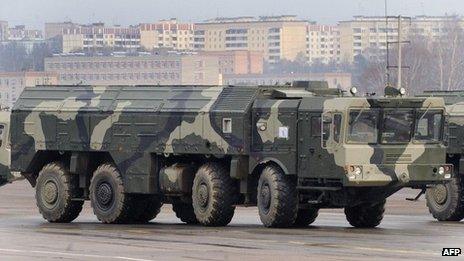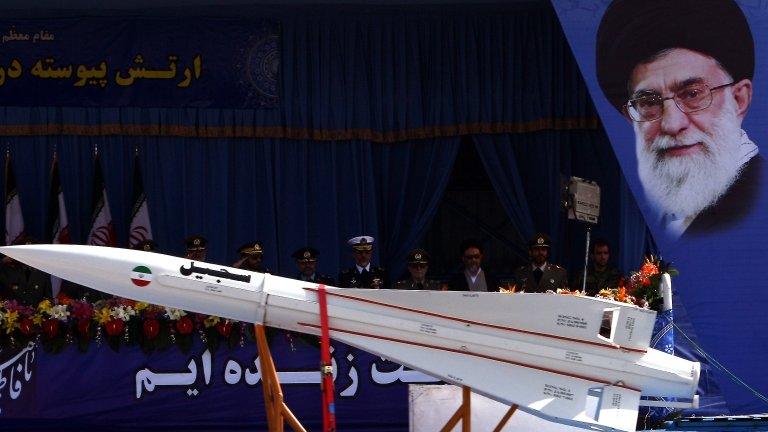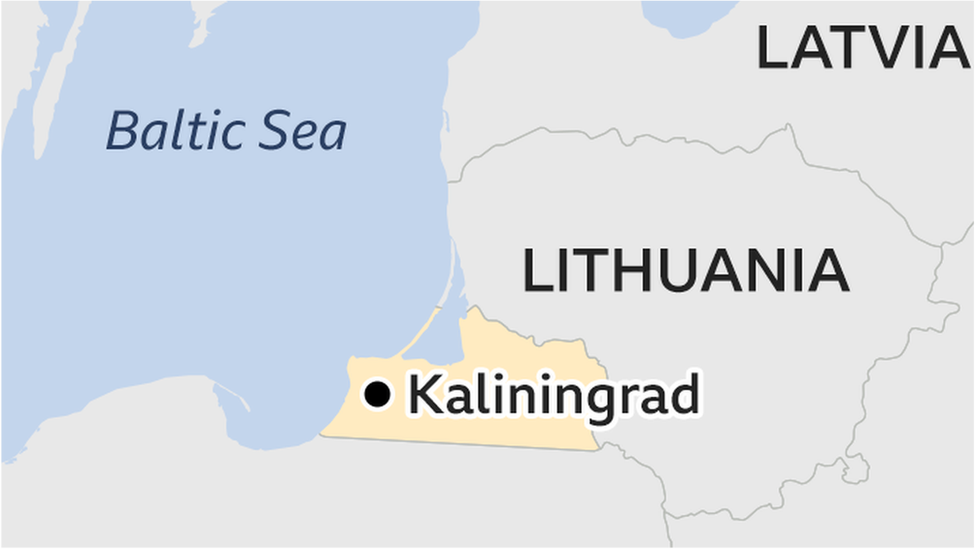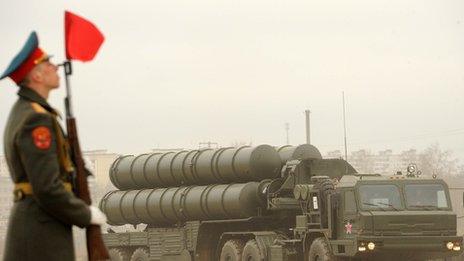Kaliningrad: European fears over Russian missiles
- Published

Russia has long threatened to deploy its Iskander missile system in Kaliningrad
European countries bordering Russia's territory of Kaliningrad say they are worried at reports that Moscow has put nuclear-capable missiles there.
Lithuania and Poland both issued statements of concern.
Russia has not confirmed the report but insists it has every right to station missiles in its western-most region.
Moscow has long threatened to move Iskander short-range missile systems to Kaliningrad in response to the United States' own European missile shield.
Russia sees the missile shield as a threat to its nuclear deterrent.
It was one of the biggest sources of confrontation between Moscow and Washington during the presidencies of George W Bush and Vladimir Putin.
President Barack Obama tried to "reset" relations with Russia, and the shield system was revised - but it survived in a different form and continued to antagonise Russia.
'No violation'
The US insists that the missile shield is not aimed at Russia but designed to defend Europe from attack from "rogue states" - assumed to include Iran.
A Russian defence ministry spokesman, Igor Konashenkov, did not confirm the report - in the German newspaper Bild - that the Iskander system had been deployed to Kaliningrad.
But he did say: "Iskander operational-tactical missile systems have indeed been commissioned by the Western Military District's missile and artillery forces," adding that Russia's deployment "does not violate any international treaties or agreements".
The Western Military District includes parts of western and north-western Russia, including the Kaliningrad exclave, which is separated from Russia proper and wedged between Poland, Lithuania, and the Baltic Sea.
The Russian newspaper Izvestia reported on Monday that the missiles had already been stationed in the area for more than a year.
Lithuania's Defence Minister Juozas Olekas said: "I am worried about signals that Russia is about to modernise missile systems it has deployed in Kaliningrad.
"Further militarisation of this region, bordering the Baltic states and Nato, creates further anxiety, and we will be watching the situation there closely.''
The Polish foreign ministry said: "Plans to deploy new Iskander-M rockets in [Kaliningrad] are worrying."
It added that such a deployment "would contradict effective Polish-Russian co-operation, in particular with respect to this region, and undermine constructive dialogue between Nato and Russia. We will raise this topic in our bilateral contacts with the Russian side."
- Published28 October 2013

- Published20 May 2012

- Published22 August 2023

- Published3 May 2012



